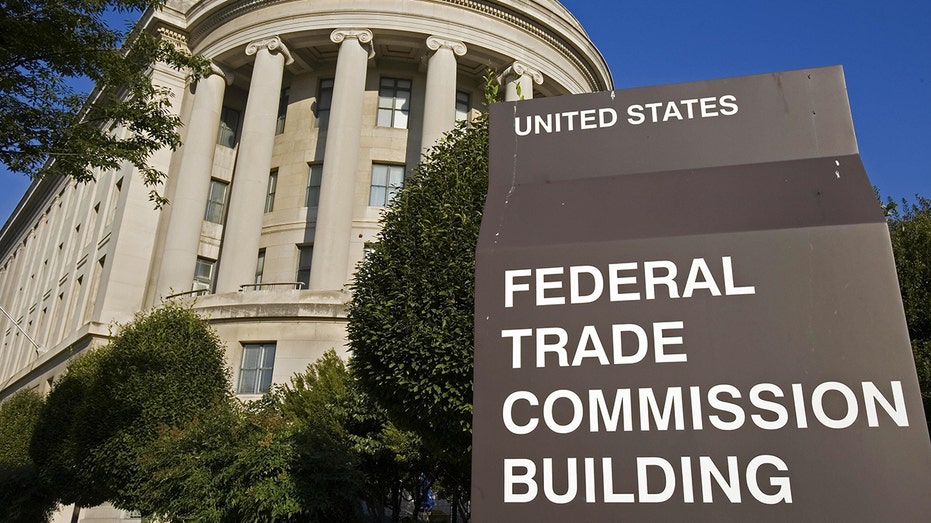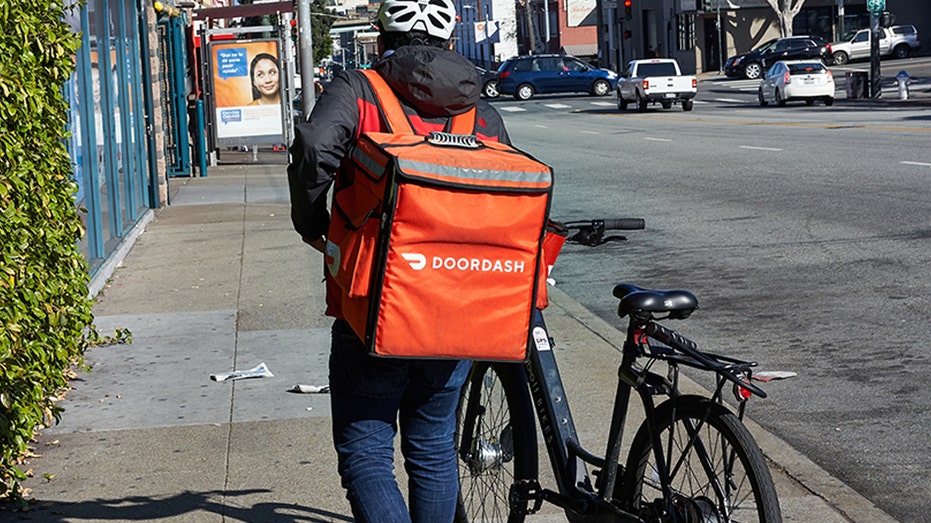FTC promises crackdown on companies taking advantage of gig workers
Companies that have contributed to the growth of the gig economy include Uber, Lyft, DoorDash, GrubHub, Instacart
Inflation has not peaked, it's in the 'core' of the economy: Goldman Sachs' Vassalou
Goldman Sachs Asset Management co-CIO for multi-asset solutions Maria Vassalou and Meridian Equity Partners senior managing partner Jonathan Corpina discuss how the Fed can reduce inflation without crashing markets on 'The Claman Countdown.'
The Federal Trade Commission has outlined a new plan to hold gig companies accountable for taking advantage of their workers.
In a 17-page policy statement released Thursday, the FTC highlighted multiple challenges facing gig workers, including deception about pay and hours, unfair contract terms and anticompetitive wage fixing and coordination between gig companies.
"No matter how gig companies choose to classify them, gig workers are consumers entitled to protection under the laws we enforce," Samuel Levine, director of the FTC’s Bureau of Consumer Protection, said in a statement. "We are fully committed to coordinating our consumer protection and competition enforcement efforts within the FTC as well as working with other agencies across the government to ensure gig workers are treated fairly."

A worker rides a bicycle to his job in the food delivery service in Kawasaki, south of Tokyo. (REUTERS/Kim Kyung-Hoon)
The Flex Association, a trade group that represents Uber, Lyft, DoorDash, Instacart, Grubhub, Gopuff, HopSkipDrive and Shipt, was present during the FTC's 3-2 vote on Thursday to adopt the policy statement. The trade group told FOX Business that it welcomes an "open dialogue" with the FTC to share insights into ways its members can support app-based earners and their communities
"During yesterday’s meeting, we heard from workers and advocacy groups emphasizing how app-based work provides flexibility and independence that lets millions of people earn additional income on their terms," Flex CEO Kristin Sharp told FOX Business in a statement. "What’s missing from the FTC’s policy statement is the perspective of those very workers the agency seeks to protect."
COVID-19 PANDEMIC SPURRED INCREASE IN GIG WORKERS, UNIQUE JOBS: 'AIRBNB FOR DOG PARKS'
Citing statistics from the Federal Reserve and the agency's Serving Communities of Color report, the policy statement notes that 16% of Americans are earning money through an online gig platform and that 30% of Latino adults, 20% of Black adults and 19% of Asian adults have engaged in gig work, compared to 12% of White adults.
A 2019 study by MasterCard has previously forecast that the gig economy could generate $455 billion in annual sales by 2023.

The Federal Trade Commission has outlined a new plan to hold gig economy companies that take advantage of their workers accountable. (PAUL J. RICHARDS/AFP via Getty Images / Getty Images)
In order to hold gig companies accountable, the agency says it will scrutinize potentially unfair terms imposed on gig workers, including non-compete clauses, liquidated damages clauses and nondisclosure agreements.
It will also investigate evidence of agreements between gig companies to fix wages, benefits, fees or other terms relating to gig work that should be subject to competition, as well as evidence of no-poaching agreements and agreements that share competitively sensitive information that might suppress compensation for workers.
Additionally, the consumer watchdog will review and, as appropriate, challenge mergers and other combinations of gig companies that may substantially lessen competition between or among gig companies and investigate any exclusionary or predatory conduct by dominant firms that may unlawfully create or maintain a monopoly or a monopsony that results in reduced compensation or poorer working conditions for gig workers. A monopsony is a dominant buyer or employer.
UBER LOOKING INTO COMPUTER SYSTEM HACK
The FTC has already initiated rulemaking proceedings to strengthen its ability to detect and deter deceptive earnings claims and sought comment on the prevalence of deceptive earning claims relating to gig work.
Last year, it also put more than 1,100 companies on notice that they could incur significant civil penalties — up to $43,792 per violation — if they or their representatives make claims to attract participants to money-making opportunities that are unfair or deceptive and violate the FTC Act.
CLICK HERE TO READ MORE ON FOX BUSINESS
In addition to enforcement of existing consumer protection and competition laws, the FTC says it is addressing issues in the gig economy through collaborations with agencies like the Department of Justice and National Labor Relations Board.
The agency is also focusing resources to aid Bureau of Consumer Protection staff in assessing whether certain communities are disproportionately affected or targeted by unfair or deceptive practices, including in the gig economy, and seeking input from consumer and labor groups, industry and experts on challenges facing gig workers through monthly Open Commission Meetings and targeted workshops.

A DoorDash delivery worker walks his bike along the road in the Mission neighborhood of San Francisco, California.
Though the policy statement did not call out any specific gig companies, it noted that they touch "nearly every aspect of American life, from food delivery to transportation to household services."
Companies that have contributed to the growth of the gig economy include Uber, Lyft, DoorDash, GrubHub and Instacart.
| Ticker | Security | Last | Change | Change % |
|---|---|---|---|---|
| UBER | UBER TECHNOLOGIES INC. | 74.77 | -0.44 | -0.59% |
| LYFT | LYFT INC. | 16.46 | +0.62 | +3.91% |
| DASH | DOORDASH INC. | 182.47 | -1.39 | -0.76% |
| GRUB | NO DATA AVAILABLE | - | - | - |





















